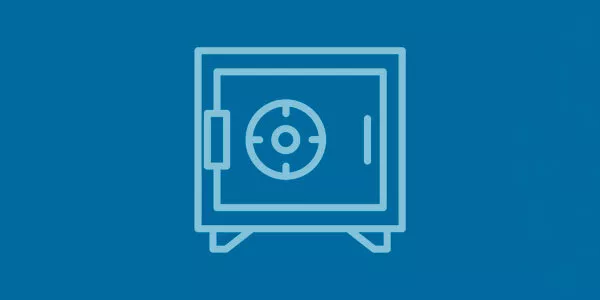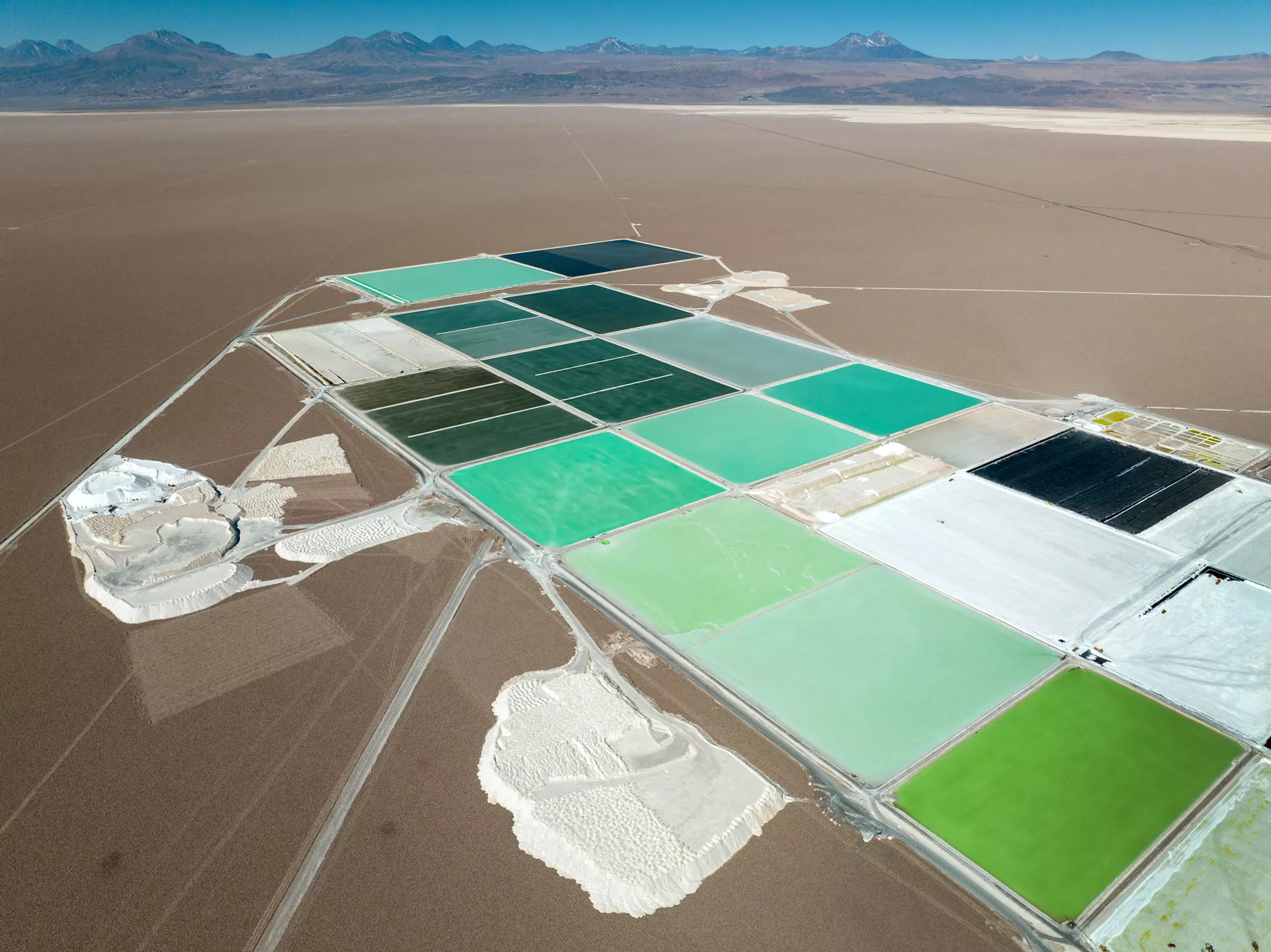
Metals, the economy’s new oil
Contributors
Patrick d’Hugues
Director of the “Mineral Resources and Circular Economy” scientific programme at BRGM
Grégoire Jean
R&D Director of Lithium projects within the Imerys group
Christophe Poinssot
Interim CEO of BRGM
Philippe Varin
Former industrialist, ex-president of France Industrie and Suez board member
One of the major equations of the global economy of the 21st century is that less carbon equals more metals. “The need for mineral resources will increase considerably, linked to low-carbon technologies but also due to the digital transition. According to the latest projections from the International Energy Agency (IEA), all the mines currently operating and all mine projects under study will still not be able to fulfil the world’s future mineral resource needs. It takes an average of 17 years to bring a new mine on-stream, so there is certainly a risk of shortage over the next decade for certain metals key to the energy transition, with tensions on prices and the probable need to prioritise certain uses over others”, warns Christophe Poinssot, interim CEO of BRGM (Bureau of Geological and Mining Resources).
The IEA predicts that the demand for metals for transportation (electric vehicles, batteries, networks), low-carbon electricity generation (renewables, nuclear) and hydrogen industries could increase from around 16.2 million tonnes (Mt) in 2020, to 27.8 Mt in 2040, if the objective of carbon neutrality by 2050 is to be met. “Over the next 30 years, we will extract as many material resources from the planet as have been extracted since the beginning of human history”, notes the former industrialist Philippe Varin. The extraction of raw materials has doubled since 1990 and the global consumption will have increased by 40% by 2040 and almost 90% by 2060 compared to 2017, estimates the OECD.
“Classic” mineral resources such as copper or “new” ones such as lithium, cobalt or manganese are all concerned. For example, lithium needs will have multiplied by 42 times by 2040, those for graphics by 25, those for cobalt by 21 and those for nickel by 19 times. And the world could consume between 60 and 90% of known copper resources by 2050, according to scenarios from IFP Énergies Nouvelles (IFPEN).
Reduce dependencies
The challenge to be met is strategic for Europe. Faced with increased geopolitical tensions, Europe needs to secure access to mineral resources to succeed in its ecological and industrial transition. “In 2030, Europe will have to import at least 70% of the transition metals it needs,” observes Philippe Varin. The European Union (EU) has identified 30 critical raw materials essential for industrial value chains and many key products and technologies. It only produces 1% or less of certain specific raw materials for lithium-ion batteries, wind turbines and electric motors, according to Milan Grohol, expert at DG Grow, European Commission. For the vast majority of its needs, Europe depends on non-European countries: for example Chile for lithium and copper, the Democratic Republic of Congo for cobalt, South Africa for platinum group metals, Russia for palladium and above all China for strategic materials such as antimony, rare earths, tungsten, graphite or silicon metal. “Our dependence on China is too great, for example it controls 50% of the value chains for batteries and 90% for magnets”, bemoans Philippe Varin. This dependence is in fact present at all stages of the value chain. As Patrick d’Hugues, director of the “Mineral Resources and Circular Economy” scientific programme at BRGM, points out: “To regain mineral sovereignty, it is not only a question of opening mines but also of relocating industrial purification, refining and processing stages”.
This is the driving force behind the draft Critical Raw Material Act or “CRM Act”. Published by the European Commission on 16th March. It aims to develop the extraction, processing and recycling of the metals necessary for the energy transition in Europe. (read the interview with Philippe Varin below). Awareness of such vulnerabilities is prompting European states to take action. “Today, many European countries want to set up a public economic intelligence capacity focussed on critical metals. Finland, the Netherlands, Italy and the United Kingdom are engaging in discussions with Ofremi (French monitoring organisation of mineral resources for industrial sectors) created in France at the end of November 2022, following the Varin report. Germany showed the way with the DERA, notes Patrick d’Hugues. The organisation, attached to the BRGM, pools the skills of several public and private players. “Its vocation is to provide public authorities and national industrial sectors with a map of world supplies and associated processing chains, assessing current and future needs, as well as risks, so as to inform any decision-making well in advance. It is a question of better anticipating future crises in order to build in the best possible levels of resilience”, explains Christophe Poinssot.
3 questions for Philippe Varin
Author of a report in January 2022 on securing the supply of mineral raw materials to the French government, Philippe Varin has spent his entire career in industry. He was notably chairman of the management board of PSA, chairman of the board of directors of the mining group Orano and then of Suez.
Is the draft European regulation on critical raw materials unveiled on 16 March an important step in reducing Europe’s dependence and securing its supplies?
Philippe Varin: This project has positive points. Establishing the list of critical and strategic raw materials (CRM) and updating them, demonstrates the will to deal with these issues in a concrete manner. Setting reference indicators is important for charting a roadmap. For example, by saying that the EU should not depend on a single third country for more than 65% of its annual consumption for each strategic raw material represents real progress, by promoting diversification. The identification of “strategic European projects”, with easier access to financing and shorter authorisation times, is a step in the right direction. I also welcome the desire to develop common standards for responsible mining, with one caveat: this has not been included in the EU’s green taxonomy. It’s an anomaly! Another downside is the issue of funding. The investment needs are enormous and, for their part, China and the United States support their industries through direct incentives. In response, the EU must start thinking more about its approach to this issue, because it is not the carbon price alone that will determine the choice of economic actors. The risk for the EU is to miss local opportunities or end up with a relocation of opportunities to the United States.
In your report, you recommended the creation of an investment fund to help secure supplies...
P.V.: For the first time in their history, major manufacturers such as car manufacturers will have to sign long-term contracts for mining supplies. But these contracts, even take-or-pay ones, do not provide enough guarantees. This is why I recommended the creation of a private fund, subsidised by public contributions, to allow industrialists to take on minority stakes in mines abroad. Being a financial partner of various different mining sites will make it possible to secure supplies. This proposal has certainly aroused the interest of the French government, and last autumn, the European Commissioner Thierry Breton spoke of the possible creation of a European sovereign fund which could intervene for critical raw materials but also in other areas linked to the REPowerEU plan on energy. This topic remains open.
What should be the priorities of a European metals diplomatic policy?
P.V.: The EU has already concluded strategic bilateral agreements with Chile and Canada which include access to mineral resources and this is a good thing. But we must also redefine our partnership with African countries that have young populations and want to create refining and metal processing activities. It is essential for France — and for the EU — to act in the development, in consultation with African countries, of a holistic approach that meets the expectations of all parties. Finally, the launch announced by the EU of a global club of like-minded partners that can join forces for mining operations is an excellent initiative. These coalitions play a role of political stabiliser. Let us be aware that metals too could be the cause of future conflicts, as has been the case for oil for 50 years now.
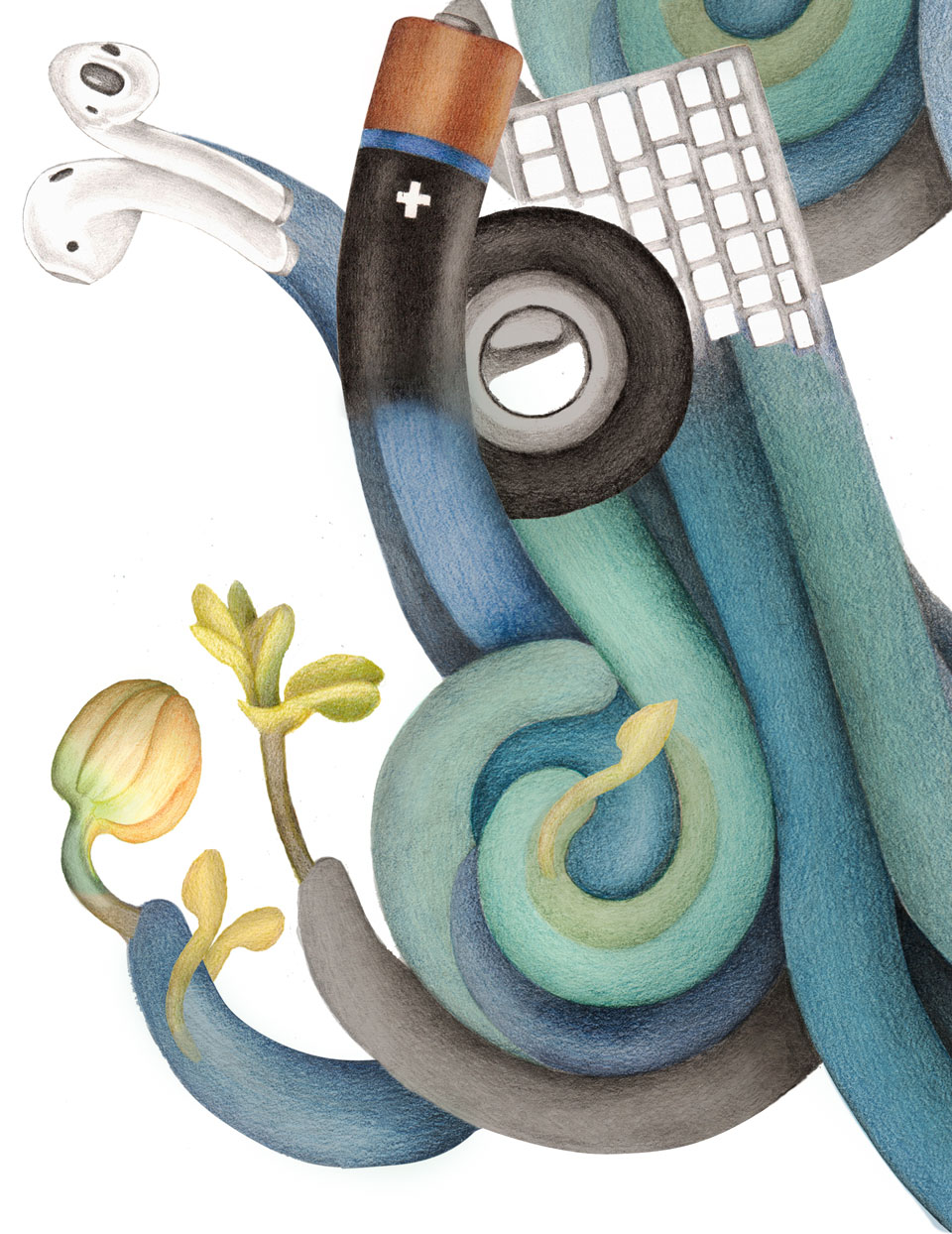
Around the world, other countries facing similar supply issues are mobilising. Japan created the JOGMEC Agency in 2004, and Korea has a state fund that invests alongside companies to secure their access to mineral resources. To prepare for the post-oil era, Saudi Arabia launched a fund in January 2023 to invest up to $15 billion in international mining projects. In the United States, the August 2022 climate investment plan aims to boost the North American rare metals sector. China, which has very little lithium, no nickel or cobalt, has been securing access to these particular metals for almost two decades. It invests in the main mining regions and controls much of the process of extracting and refining many raw materials. The General Directorate of the French Treasury in Kinshasa notes that 90% of Congolese cobalt and copper is exported to China, which created the China Mineral Resources Group (CMRG) in 2022 to centralise its metal purchases.
Mines in Europe
While it is clear that international trade will remain essential to meeting current and future needs, there has also been a fresh look at mining opportunities in Europe. The European subsoil indeed conceals many mineral resources often poorly estimated due to lack of recent investment in mining exploration. Thus in France “The subsoil is a priori rather well endowed with mineral resources but we don’t know much about it, given the inventory is more than 40 years old. In view of projected future needs, it would be clearly in everyone’s interests to redo a mining inventory of the entire national territory in order to identify mineral resources likely to become deposits of economic interest in the future”, emphasises Christophe Poinssot.
In Europe, “it is interesting to draw inspiration from the Scandinavian countries which have been able to maintain mineral extraction by integrating high levels of socio-environmental criteria”, adds Patrick d’Hugues. To this end, research is centred around the reduction of waste, the recovery of by-products, the limitation of energy and water usage and the reduction of carbon emissions. Ensuring a responsible approach to mining is necessary at a time when lithium extraction and refinery projects are multiplying in Finland, Czech Republic, Austria, Portugal and Germany.
In France, in October 2022 the Imerys group, a world leader in specialty minerals for industry, announced the launch of the “Emili project” on its Beauvoir site (Allier) which produces kaolin. Imerys aims to produce 34,000 tonnes of lithium per year from 2028 for at least 25 years. “This will be one of the three largest lithium extraction projects in Europe”, notes Grégoire Jean, R&D director for lithium projects, “it will enable the equivalent of 700,000 electric vehicles to be equipped with lithium-ion batteries each year”. The “Emili project” is looking at being a benchmark for responsible mining moving forward. “We align with the IRMA standard (Initiative for Responsible Mining Assurance), with a global outlook. Its standards are auditable and very demanding at the technical, environmental and social levels and promote an ongoing consultation with society as a whole”, continues Grégoire Jean. “Techniques for the extraction and processing of minerals that respect the environment and local populations are constantly being improved upon. The project is based, for example, on the use of “high-tech processes” for underground mining, in order to “minimise the visual and noise impacts as well as on the natural habitat. The objective is also to reduce the carbon footprint at each stage of the extraction process. This is part of the group’s general policy, which aims to reduce its CO₂ emissions by 42% by 2030”, specifies Grégoire Jean. “This approach certainly has an impact on the cost of production”, he notes, “but in a tight lithium market, it will remain competitive, particularly in Europe.”
Circularity and sobriety
Exploiting the resources of the European subsoil is however only one aspect, as is illustrated by the case of lithium. “If we compare the current estimates of European needs in 2030 (600,000 tonnes) and those of intra-European production (250,000 tonnes), which take into account all the projects announced by the extractive industry, we see that less than 50% of the demand will be satisfied in the short and medium term, without a contribution from large-scale recycling. Achieving significant self-sufficiency in lithium is an illusion. The new European regulation on electric batteries should nevertheless encourage the development of an industrial recycling sector”, observes Grégoire Jean. The Eramet mining group announced the construction of the first European automotive battery recycling plant in Dunkirk in January 2023. The site should be operational by 2025, recycling more than 90% of the equivalent of 200,000 batteries per year.
However, we are still far from fully exploiting the potential of recycling. Globally, only 12 out of 60 metals studied, mainly base metals, are 50% or more recycled and for the majority, including strategic metals, there is little or no recycling. Only 12% of the raw materials used in European industry come from recycling. “Recycling is key and France has real know-how in this area. It must be developed without hiding the simple truth that one cannot recover 100% of the constituents of an object. And recovered yield from an end-of-life object manufactured more than a decade ago will not necessarily correspond to the needs of current technologies. Moreover, the growth in demand is such that recycling will only ever be able to cover a limited part of our needs”, explains Christophe Poinssot.
At the BRGM, the Plat’Inn pilot project tests recycling processes for mining, industrial and urban mine waste. “The tailings from urban mining in particular are dispersed, heterogeneous and often poorly understood”, notes Patrick d’Hugues. “Our work aims to sample and analyse it and assess its potential for critical metals extraction. This is essential to define a viable economic model.” Start-ups are indeed active in the emerging market of metal recycling, developing processes dedicated to the treatment of waste. One example is Weeecycling which supplies industry with platinum-group metals and copper recovered from electronic waste, pharmaceutical industry baths and surface treatments.
“The extractive industry should be working to consolidate supply from recycling and participating in eco-design efforts to reduce the need for new minerals”, according to Canadian academics. Work on battery design can thus substantially reduce the use of copper, nickel or even lithium. Innovation is at the heart of the solutions, as Philippe Varin points out. “A lot of research is geared towards a frugal use of resources and new technologies. For example, in the field of mobility, the World Materials Forum (WMF) is focussing, in 2023, on both current and alternative battery chemistries. Start-ups are developing sodium and sulphur batteries which will certainly have less range than lithium-ion batteries but are perfectly suited for urban and near-urban journeys and much less expensive.” Using materials in a better way, and in smaller quantities, is the challenge for tomorrow that the WMF formulates as “Using less, longer and smarter”.
Look further

An internet site
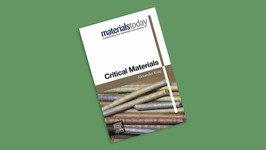
A book
Critical Materials
Alexander King, Ed. Elsevier, Nov. 2020
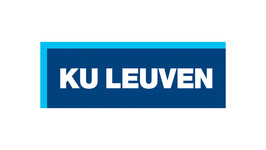
A report
Metals for clean energy
KU Leuven, April 2022
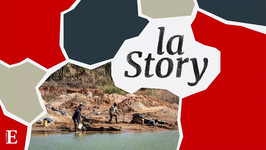
A video
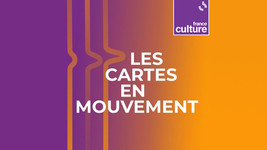
A map

By
Catherine Véglio
Editorial consultant, journalist, novelist, Catherine Véglio explores the fields of economy, innovation, science, technology and their relationship with society.

Artwork
Carmen Garcia
Carmen is an illustrator from Madrid. She designs for luxury goods, jewellery, fashion and gourmet food brands, as well as institutional campaigns and magazines. She regularly moves from portraiture to figurative illustration.


